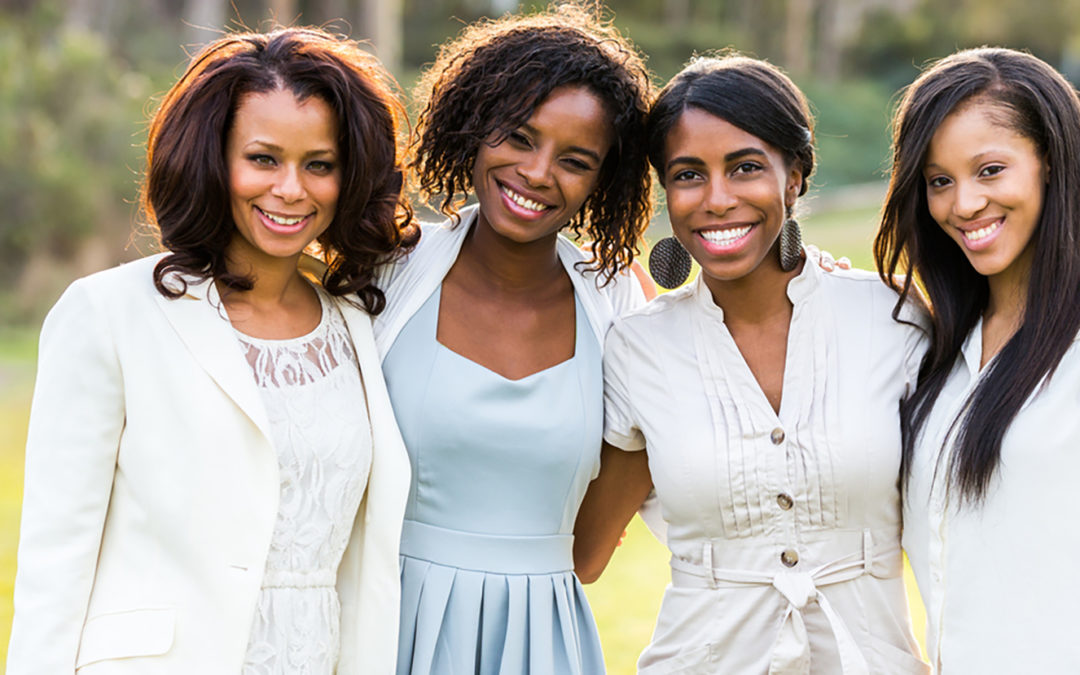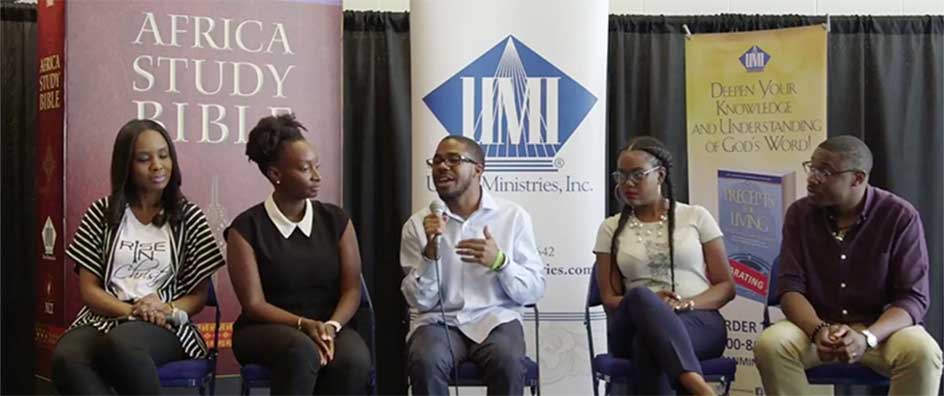
by Candace Howze, Urban Faith Contributing Writer | Jan 17, 2017 | Headline News |
Millennials are the largest generation since their parents, the Baby Boomers, and already are making their mark on society and the church. As many young women are marrying and beginning their new lives, some will also take on the responsibility of first lady—the wife of the senior pastor—in their respective churches, a role with much spiritual and moral weight.
While the traditional idea of a first lady remains the same, many young women have a more contemporary view of how their lives can impact other women in their congregation.
LaToyia Ledbetter, 32, is a first lady at Mt. Pisgah MBC in Chicago. Her husband, Rev. Ernest Ledbetter III, is a third-generation pastor, so she is familiar with how the term “first lady” has evolved over the years.
“I don’t think there’s anything wrong with the title … People just want to find a way to respect you as the pastor’s wife,” she says. “But I don’t want you to put me on a pedestal. We are all supposed to be working in the body of Christ … and bringing souls to Christ. We don’t want it to be like, ‘This is the pastor and first lady. Rise when they walk in.’”
Katie Windley, a millennial first lady from North Carolina, says she prefers to be called by her name rather than “first lady” because it’s simply a title, something she says pales in comparison to the moral role at hand: setting a godly example.
“To me, you should represent your spouse, carry yourself to a standard where others can look up to you. You should always carry an attitude of faith and not of anger, attitude, or animosity, but love and kindness, but you should never allow your being a first lady to become arrogant,” she says.
Katie admits that being a first lady is “challenging, but most desirable because God gives you the strength to handle things.” Many of those challenges also come from the pressures to live up to a position that many women regard as a real-life example of the Christian walk, something that LaToyia believes is every woman’s duty.
Rocking the Label

LaToyia Ledbetter poses with her husband Rev. Ernest Ledbetter III of Mt. Pisgah MBC in Chicago.
“At our church, we say that everyone is the first lady in her household,” LaToyia laughs. “You should be the first lady in your house, so technically, there should be a ton of first ladies. I don’t think the title ‘first lady’ [defines] a great woman. You can be a great woman without being called a first lady.”
“My responsibilities do make me feel different, because I have to set myself apart from others, even the ones that are my age that attend church or family members,” Katie says. “I can’t [be effective] in this role if my living doesn’t match up, but I am still down-to-earth and love to laugh and have fun.”
Regardless of the labels we use, LaToyia says there are major keys to being married to a pastor that all women must keep in mind.
“You have to love God for YOURSELF,” she says. “Have a personal relationship with him and a STRONG prayer life. That will get you through the toughest of situations, especially in those beginning years when learning to balance ministry and marriage.”
She also reminds young women to respect their husband’s calling, by always ensuring he has time to himself to pray, study, and listen to God’s voice—never make him choose between God and you.
Katie also emphasizes pursuing your own calling while you support your spouse. “I make time for my dreams because you have to. You can cause yourself to be mentally and physically depressed trying to follow right alongside your husband’s dreams. You still have to live for yourself and accomplish all you set out to do.”
LaToyia also points out that a first lady must have a congruent personal and spiritual relationship with her husband.
“I tell women who are dating ministers, go listen to a sermon while dating. You may love his company and think he’s a great guy, but you can’t be with half of him. If he is teaching something that you as a Christian can’t agree to or respect, then you should reevaluate and pray as you will have to support both the man and the ministry in marriage.”
The New-Aged First Lady
While the role of first lady in the church is an important one, millennial woman are increasingly independent and putting marriage among their generation on hold. In fact, only 27% of millennials are tying the knot nowadays compared to 36% of Generation Xers, 48% of baby boomers, and 65% of traditionalists at the same age.
With more millennial women holding out on marriage and pursuing personal goals, where does the concept of being a “first lady” fit into life? By definition, a first lady is “the leading woman in a particular activity or profession.” This means the status of first lady is not directly tied to courtship, as many of us grew up hearing.
“I think women of past generations have seen themselves through the lens of patriarchy, i.e., they saw themselves as helpmeets to those whom they married, and they worked within that space—but never out of it,” says 20-something believer Kristina Redd.

Photo Courtesy of LeToyia Ledbetter
“Women have conceptualized the power to be leaders outside of their husbands’ work. Now, marriage isn’t the requirement to be a first lady. The dynamic has changed where it’s understood that women may be married or single, but their passions and dedication to their own work is commendable and glamorized.”
Some millennials also agree that being a leading lady isn’t confined to being the bar-none, most excellent person in your field. For many, a first lady is someone who gives 100% of her effort, and doesn’t exalt or separate herself from her fellow women.
Student Kathryn Turner says she believes that “the millennial first lady can be the last lady in her profession, class, or whatever it may be as long as she performs to her best abilities. She understands that all people are different and will not judge anyone.”
Kristina chimes in that women of past generations have often “distanced themselves, so to speak, from [the women] they lead. A millennial first lady is admired more for her approach instead of being a figurehead. She rolls up her sleeves, and she isn’t afraid of the first lady crown to fall off while working.”
Leading Ladies of Tomorrow
While many millennials still believe the first lady role is a symbol of personal and professional success, many point to personal qualities that set a leading lady apart from the crowd, making her more than just a profitable working woman. Compassion, supportiveness, and humility were frequently cited as key traits.
“She’s someone who had a first-hand experience and clearly bounced back—a survivor of some sort,” says 24-year-old Jacquelyn Segovia, who also says many people want a first lady to “act right,” so it’s important that she stands up for herself and be a people person.
“She’s also a go-getter! Anything with Christ, she can do!” Jacquelyn adds.
Kathryn says the millennial lady is particularly unique because she doesn’t aspire to fit into a category, but instead “helps other women create their own category free from persecution or criticisms by others who have not learned to live as confidently and as comfortably in their own skin as she has. She brings women together, celebrating both their differences and common ground without attempting to overshadow or remold one another.”
Kristina points out that a first lady should be a dynamic person who understands her influence. Her faith is vital because her growth is based on a desire “for God to empty her fully so she can commit herself to the void her life was written to fill,” she says.
Most importantly, many young women agree that the life of a first lady is marked by interactions with her peers. Being a testament to God’s love and strength goes a long way in making today’s woman a first lady.
“A millennial first lady can look like and be any woman,” Kristina says. “She is present in the lives of those she cares for, and has expectations for those whom she gives her heart to. Any woman can be the leading woman of her life and for the story God has written her into.




